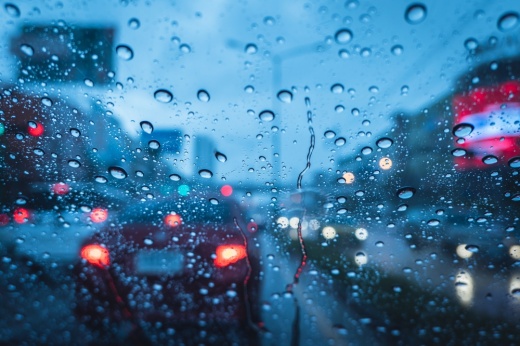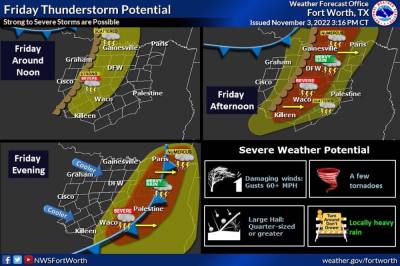National Weather Service Meteorologist Bianca Garci said commuters should plan for the possibility of damaging winds and a possible tornado warning Nov. 4, especially through the morning and early afternoon. Motorists are advised to stay off the road as much as possible or to prepare a severe weather plan during their commute.
“The best thing to do right now, like through the morning and early afternoon, is just review your severe weather plan whether you're at work or at home, just wherever you could possibly find yourself, especially during the afternoon commute,” Garcia said.
If strong winds disrupt drivers on the road, they should find a building and take shelter there, or get out of their car and hide in a ditch, Garcia said. However, she warned against finding shelter under an overpass.
“We do not recommend stalling under the overpass because sometimes those winds can tunnel in and be stronger as it tries to travel into the tunnel,” she said.
Garcia said there will not be a lot of rainfall during the Nov. 4 storm, with only half an inch to 1 inch of expected rainfall. The main concerns are the severe winds, which have the potential to turn into tornadoes.
“It may take a little while after the storms develop,” Garcia said. “It does start off as just your scattered thunderstorms, and then as that coastline approaches from the northwest, it'll develop into a wind, so that's when we'll see that potential for damaging winds and increase [of tornado warnings].”
Garcia said the best way to keep safe is to continue to stay informed about the developing storm to take action for damaging winds and tornado warnings. However, the storm is expected to pass through the Dallas-Fort Worth area by the end of Friday and is not expected to last through the night.
“Once that cold front moves through, our threats will diminish,” Garcia said. “The winds will continue to move east, and as far as rain chances for [Friday night, they should end] sometime probably after 10 [p.m.] We should have that rain well to our east, and we should have cooler temperatures.”






